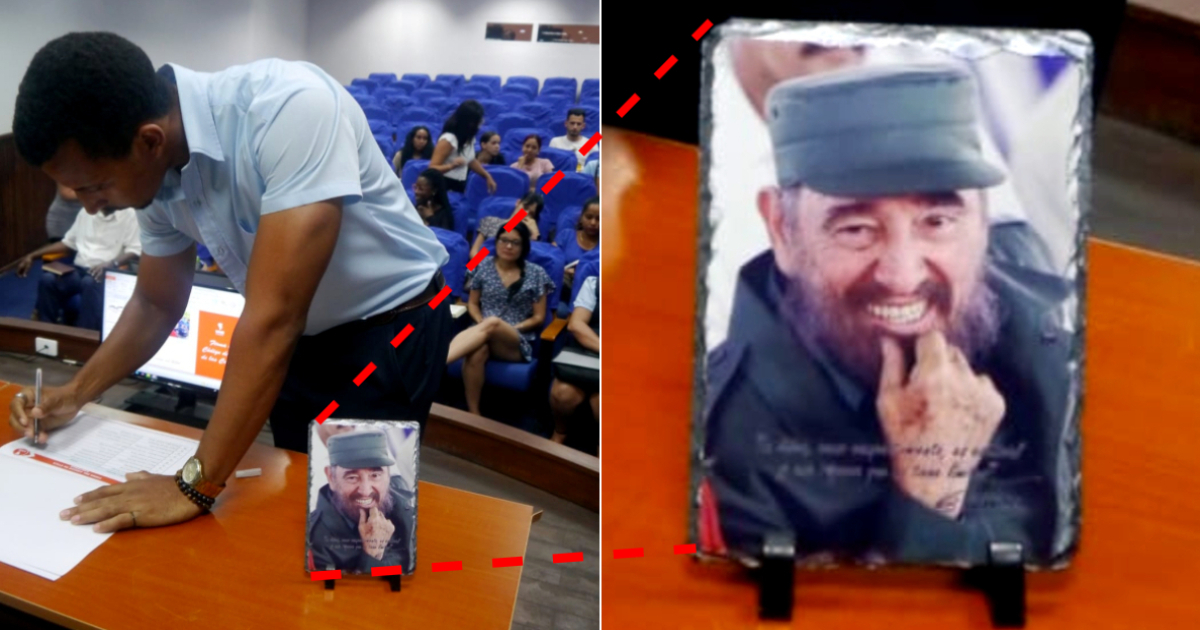
As they say: "the joke speaks for itself." There's no need for a narrative to accompany it. One just needs to be fortunate enough to find it, this time on the social media of the Electric Company of Havana.
With the country more subdued than ever and a population more fired up than before, this state-owned enterprise graciously announced on Tuesday the good news that its "cadre of officials" has signed the penultimate invention of "continuity" to give the illusion of governing: the Code of Ethics.
"This afternoon, young talents from our company's talent pool signed the Code of Ethics, an essential document in their development as future leaders," the company reported on its social media.
The Director of Organization and Control, Imaray Roll Bernal, "referred to the values that should guide the work of leaders, emphasizing patriotism and honesty."
Another executive, engineer Sandy Medina, "shared moments from the promotional journey in her career as a leader and encouraged young people not to give up and to work diligently to achieve their goals."
Finally, the general secretary of the PCC committee of the company, Lázara Miranda, urged everyone to exchange ideas and to participate in each process with the joy and responsibility that defines them.
Up to that point, everything was "normal": the typical propaganda and empty rhetoric of the so-called "continuity" of the ruler Miguel Díaz-Canel.
But one detail (oh, the devil is in the details), a small nuance brought the entire ceremony into a supernatural, macabre, ridiculous, or absurd realm, depending on the observer's perspective.
A couple of photographs shared in the post showed two of the signatories approaching the podium to reaffirm their commitment to "revolutionary ethics." And there, beside the signature booklet, who appeared? The mocking effigy of the Commander of the Stone of Santa Ifignia, namely, the dictator Fidel Castro.
From his little square, or corner of hell, the author of "revolutionary ethics" observed with a smile the parade of signatories, wearing an unmistakable expression of satisfaction at such a "quarry of little squares," docile, indoctrinated, and yet dreamily aspiring to "paroles" and other parallel lives.
Concerned about the morals and values upheld by the "revolutionary leaders," the Cuban regime has decided to strengthen the ethical principles of its leaders to "correct distortions and revitalize the economy."
At the end of February, executives from the Unión Eléctrica de Cuba (UNE) attended a conference on "the principles and values outlined in the Code of Ethics."
While the "revolutionary leaders" internalized the importance of being loyal "to the Communist Party of Cuba, to the Revolution, and to the thoughts of José Martí and Fidel Castro Ruz," in the air-conditioned communication office of the UNE, an official was preparing the information note for that day, notifying the public about the upcoming power outages they would experience.
Without any embarrassment. Determined, like a good "comrade", to "unconditionally defend, to the last consequences, the interests of the people, the State, and the Government." With great ethics to normalize the energy crisis.
Filed under: